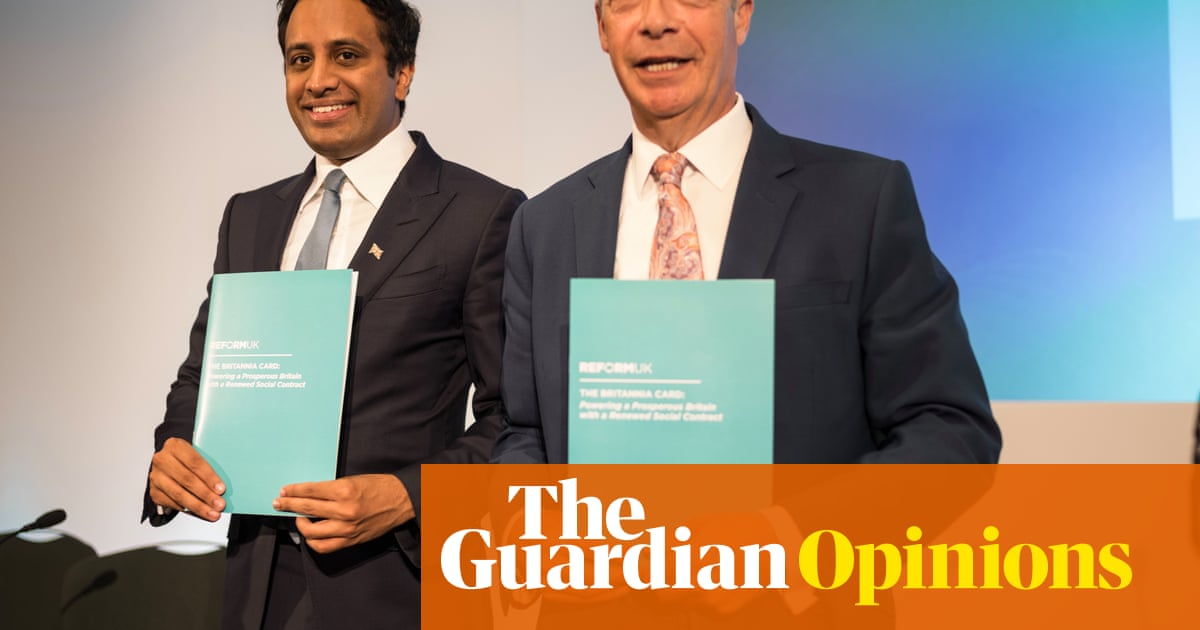In a political landscape where the traditional left struggles to even mention the working class, let alone articulate a compelling vision for them, Nigel Farage and Reform UK are playing a shrewd hand. This week they will add to their political momentum with a bold, headline-grabbing policy: theBritannia Card– a commitment to tax the rich to put money in the pockets of the poor. This isn’t just policy; it’s political theatre, designed to resonate deeply with an electorate hungry for tangible change, mixed with an idea of British patriotism.
Reform’s proposal is deceptively simple: anyone seeking to live in the UK must make an “entry contribution” of £250,000. This substantial sum, the policy pledges, would then be directly redistributed to the lowest 10% of earners, making 2.5 million people between £600 and £1,000 better off a year, depending on uptake.
This policy capitalises on a surging public appetite for wealth redistribution. Polls indicate thatmore than three-quarters of Britons, and69% of Reform voters, believe the rich should be taxed more. The sheer simplicity of taxing new arrivals and directly putting that money into the hands of struggling families creates an easily digestible and highly memorable message. It also tackles a pervasive public cynicism: a distrust of politicians’ ability to handle tax revenues. By hypothecating – ring-fencing – these funds directly for the poorest full-time workers, Reform bypasses the common fear that taxes disappear into a black hole of government spending.
This populist appeal is not unique to Farage. Across the Atlantic, New York mayoral candidate Zohran Mamdani has gained significant traction with a similar approach:taxing the wealthy to fund free childcare. The lesson is clear: politicians who offer transparent, direct benefits, funded by those perceived to be able to afford it most, capture the public imagination.
Of course, Farage is (annoyingly) a master of political manoeuvring, and the Britannia Card is no exception. While it promises to enrich the poor, it simultaneously offers a subtle tax break to the wealthiest. The proposal would be a significant boon to the global super-rich, because all their overseas income and assets would be exempt from UK taxation for a decade.Labourhas been quick to point out that this could lead to a net decrease in tax income overall. But in the age of soundbites, such nuanced economic arguments often fall on deaf ears. The headline is what matters, and the headline here is “money from the rich, for the poor”.
Labour, meanwhile, seems to have retreated from the very ground that should be its natural habitat. Its reluctance to champion the working class, coupled with plans such as cutting personal independence payments (Pip), is a critical misstep. Governments get re-elected when people feel materially better off. The Biden administration’s experience in the US is a stark reminder of this. The Labour leadership has wedded itself to a flawed assumption that aggregate economic growth, if it even materialises, will translate into a felt improvement for the working and middle classes. Labour’s plans for increased investment, while needed, will take years to bear fruit. What is it offering to those struggling today?
When I worked directly with progressive governments globally, we found that “solidarity taxes” – similar in narrative to what Reform is proposing – can be highly effective. Uruguay’s tax on the richest during Covid, designed to support the poorest, proved popular due to its transparency and the clear way in which it was communicated. Similar taxes were implemented in Germany during reunification and Japan in the aftermath of the second world war. The key is clarity and directness of purpose.
Any government serious about addressing inequality should focus on taxing wealth. The latest Sunday Times rich list shockingly revealed that just50 families now possessmore wealth than the bottom 50% of the UK population. Much of this wealth, unlike income from work, cannot be solely attributed to “hard graft”, but is down to asset inflation. Crucially, the longstanding myth that millionaires will simply flee the country if taxed more heavily is being debunked. The Tax Justice Network – with Patriotic Millionaires UK and Tax Justice UK – hasrecently shownthat supposed “millionaire exoduses” are vastly exaggerated, and that tax is a minor factor in migration decisions for the tiny percentage of wealthy individuals who do move.
Labour’s current attempts to address wealth inequality, such as changes to inheritance tax for farmland and VAT on private schools, feel piecemeal. Rumours of a reversal on its non-dom tax policies suggest it remains susceptible to elite lobbying, further undermining its progressive credentials. Instead of dancing around the issue, Labour could, for instance,boldly proposea modest 2% annual tax on wealth exceeding £10m, to raise a significant £24bn annually. The crucial step then would be to articulate clearly how this new revenue would be used – perhaps to address the cost-of-living crisis by boosting social security.
Perhaps the most potent lesson Labour can learn from Reform isn’t about the specifics of the Britannia Card, but about the art of communication. While Rachel Reeves often speaks in a convoluted beige, Farage paints in bright, clear colours. He understands that political messaging, particularly on economic issues, needs to be immediate, impactful and easily understood. The very naming of the policy is a masterstroke of patriotic populism.
The name also reminds us that we are in dangerous territory. The coupling of anti-immigration rhetoric with populist economic policies is a potent combination. Labour’s true test lies not in outmanoeuvring Farage on his own turf, but in offering a courageous and convincing alternative: a clear, compelling narrative of shared prosperity, funded by those who can most afford it, for the benefit of all.
Faiza Shaheen is a distinguished policy fellow at London School of Economics, and the incoming executive director of Tax Justice UK
